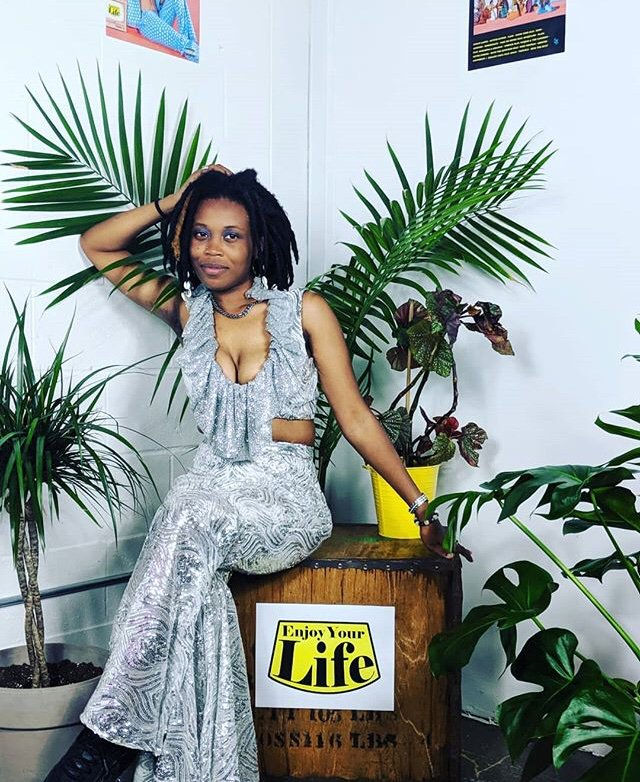More Words on Rap: Same Same But Different
- Adewojumi Aderemi

- Feb 19, 2018
- 3 min read
Updated: Mar 29, 2020
On the 8th of February, M.I debuted Rendezvous: A Playlist by M.I Abaga, a project that sees M.I recognise and collaborate with the new generation rappers he once implored to ‘fix up their lives’. Unsurprisingly, from a man who prides himself on being an innovative leader in Nigeria’s rap industry, M.I not only ticked offbeat with the conception of this featureful Playlist, he also launched the album in an atypical manner: a private listening party made public via live streams on YouTube, Instagram and Periscope, before its release on music streaming platforms.
A playlist indeed, this album transgressed genre delivering a song for almost everyone to enjoy, everyone including the misogynists.

At the start of ‘Lekki’ (lyrics here) we hear a 'Y Not Girl' demanding that her client for the night remain in Lekki, set to a bubbly beat. As soon as the dialogue finishes Odunsi’s deep voice introduces the hook followed by a beat drop into the chorus. From the narration on the tracklist (the picture above), the dialogue and Odunsi’s shout out to ‘girls that like to party’, it is clear this song is about to render some redundant opinions on female sex workers. Nevertheless, the upbeat tempo and cleverly construed lyrics distract us from the relatively judgemental tone of M.I.’s verse ("Hashtag Team Light Skin//By Cream of by snapchat filter").
Unfortunately for the listeners, this distraction quickly dies as we reach the overtly misogynistic lyrics of FalzTheBadGuy. At this verse, it seems that Falz and Butter simply invited Odunsi and M.I to their ‘Bad Gang’ (lyrics here) collaboration, and the result was ‘Lekki’. It might just be a coincidence that the most misogynistic song on this album features the two artists who made a hit of their definition of (sexually) liberated girls as rebellious, ‘bad gang’ girls. But coincidence or not, this repetition accurately depicts the constant recycling of the boring practice of men judging liberated women.

This narrative doesn't just exist in Nigeria, but I have already complained about rap in America, and this sits closer to home, in that they are Nigerian (like me) but also in that the message draws out an aspect of our society that is particularly shameful to me. Whether it is on an all-male talk show discussing feminism or over a club-ready beat, Nigerian male artistes can’t seem to shy away from discussing the affairs of women with agency (there was also Stop Smashing the Same Broads, Bro? by BrisB).
Although the judgement in 'Lekki' is subtle, it exists. By centring the song around 'Y Not Girls' (who bleach in order to be considered a #TeamLightSkin #SlayQueen) making their Aristo-Cash, this talented foursome have merely remade a song we have heard a million times. From ‘Gold Digger’ to ‘Lekki’ we’re given the same sexist songs and expected to ignore this damaging narrative because they’re hits.
Is it too much to expect that, with the way public figures are being shamed for their discriminatory attitudes, rappers would progress with us and move away from these misogynistic messages? Nigeria might be behind in addressing the patriarchal subjugation of women, but artistes are characterised by their refreshing rebellion against hegemonic structures. Musicians often pride themselves on confronting the status quo, so can they really indulge in this ‘backward Nigeria’ excuse?
Along with deleting problematic songs, making PR approved excuses*, or just boldly doing/saying nothing, perhaps our artistes will begin to reflect on the content of their songs. Of course, it is their music and they can promote whatever message they like, but this music reflects a part of our culture that we are trying to move beyond, so we are justified in being disappointed. Still, who am I to tell rappers what (not) to rap about, I can only advise is that they keep up.
*Please see here for an article specifically outlining the issues around Kiss Daniel's 'Yeba'* and his explanatory tweet



Comments